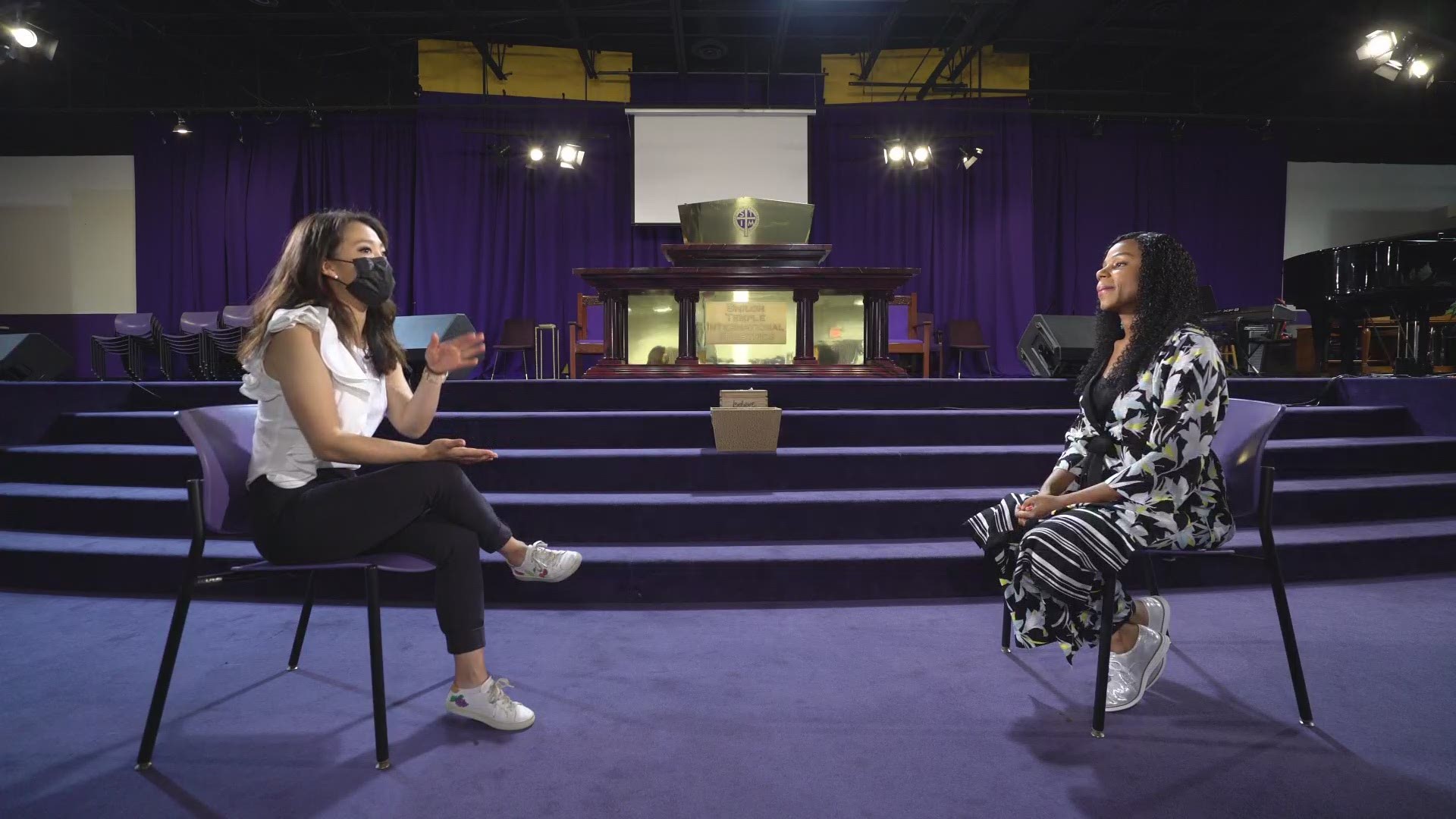MINNEAPOLIS — The afternoon of the verdict announcement, Pastor Jalilia Abdul-Brown was downtown with the people.
"I was actually sitting downtown in the Hennepin County building," Abdul-Brown said. "I went outside to see what the temperature was of the city. And people were so elated like I saw flags going up. I saw BLM signs being waved, I saw humanity signs being waved. It really made a lot of people of color, Black and African Americans-- it made us feel human."
However, the intense feelings of joy from that day, do not overcast any of the other days for Pastor Jalilia. For her, every day is great, and is a chance to do something great.
"I wake up with the mindset that today it's going to be different," Abdul-Brown said. "Today is a new day to make changes, and today is the day I'm going to see the change."
Action. It's what drives her. She said these days, it's what young people value in a young faith leader.
"One thing I've noticed about young people is, they pay more attention to what you do, versus what you say," she explained. "So being a leader on the front lines, whether it's the faith community or anything you're trying to get anybody to be a part of, it has to first work for you. And being that they see that my faith works for me, it makes other young people believe in my faith without me having to do a lot of talking."
She said she never gets tired of being out in front of others, being visible, talking to so many people each day.
"I wouldn't say it exhausts me because I am inspired and I am passionate about what I do," she said. "I am passionate about seeing lives change. As a little girl I had to walk over dead bodies. I didn't have any food to eat. So I know what it means to be left behind, I know what it means to go through trauma. So what I do is I share my story and get to work."
The core to being the core in a community, turns out, is a whole lot of storytelling.
"We do a story for a story," she said. "That's just the narrative of storytelling; saying that, 'hey I'll tell you my story if you tell me your story.'"
Authenticity and trust always come in step with each other. Trauma is first heard, then acknowledged.
"The first lens we've got to look through is a racial based lens," Abdul-Brown said. "People of color in the state of Minnesota have been left behind. We know that, I'm done talking. I'm ready to get to work."
"You cannot make decisions for the African American community, the Native American community, the Asian and Pacific Islander community without us," Abdul-Brown said. "We need to be at these tables so that we can let you know what we want to see in our communities, what we want to see in our families and then what we want to see in our generations to come."
Asked what she prays about at night before bed, she had a simple answer.
"I find myself praying about safety a lot," she said. "And then the youth in the community. I find myself praying for hope for safety for protection of the next generation."
"Then also [for] the leaders in this city," she continued. "I'm constantly praying for leaders in this city because without prayer, I don't feel like leaders can thrive. We need to be praying for our mayor, our governor, praying for the people in these key positions to make change if we're going to see change."

